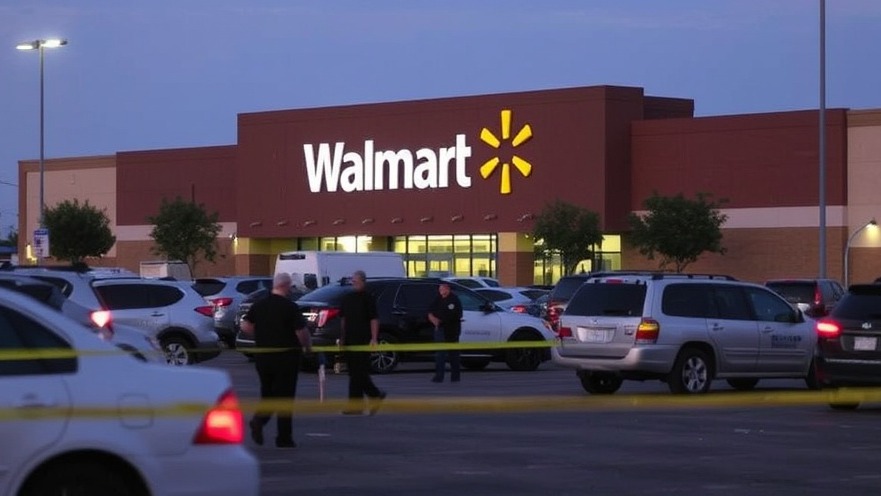
Tragedy Strikes El Paso: A Community in Mourning
In a grim chapter in American history, the August 2019 mass shooting at a Walmart in El Paso, Texas, shocked the nation. It was there that a gunman, motivated by racist ideologies, took the lives of 23 innocent souls, injuring dozens more. These are the numbers that encapsulate a tragedy that transcends mere statistics; they represent lives lost and families shattered. Recently, the shooter, Patrick Crusius, pled guilty to capital murder, a legal move designed to spare him from a death sentence, yet raising profound questions about justice, accountability, and societal reflection.
The Power of a Guilty Plea: Seeking Justice
Crusius’s plea reveals the complexities of the judicial system and how it is applied in cases of hate crimes. Prosecutors indicated that Crusius agreed to plead guilty to 90 charges, including 23 counts of capital murder, as part of a deal that keeps him from facing execution. This decision has stirred a discussion about the implications of his guilty plea—does it serve justice or merely acknowledge the inevitability of a conviction in the wake of overwhelming evidence?
Understanding Hate: The Racism Behind the Attack
Crusius’s motivations were rooted in a manifesto that espoused white supremacist beliefs, focusing on anti-immigrant sentiments. This aligns with a disturbing pattern seen in recent hate crimes across the U.S., prompting national discourse on racism and gun violence. As communities grapple with these deep-seated issues, it prompts a vital question: how do we confront the ideologies that fuel such violent acts? The attack did not just impact El Paso—it reignited a national conversation about the increasingly pervasive hate rhetoric that has found a home in various levels of discourse.
The Emotional Toll on the Community and Beyond
The ripple effects of this tragedy extend into the very fabric of El Paso and the nation. For the victims’ families, the legal proceedings can feel like an additional burden. Survivors and their families continue to navigate their trauma. Places of remembrance spring up, serving as sanctuaries for healing and collective sorrow. In sharing stories and fostering connection, these sites become beacons of resilience in the face of overwhelming grief. They remind us that the memory of those lost cannot be overshadowed by the violence that claimed them.
A Call for Action: Addressing Gun Control and Violence
The shooting at Walmart has reinvigorated calls for stricter gun control measures. As advocates rally for legislative reforms, the discussion often pivots toward the need for a comprehensive approach, one that includes mental health resources and community support to curb the cycle of violence. Community responses, from increased security at public places to educational initiatives about empathy and acceptance, form part of a multifaceted approach to preventing future tragedies.
Learning from Tragedy: Steps to Build Empowered Communities
What can we, as individuals and communities, do to foster a safer environment? It begins with understanding and acknowledging the underlying currents of hate and division. Promoting open dialogue can bridge gaps between communities. Taking part in local discussions and supporting legislation that prioritizes safety over complacency is vital. This is not merely a local issue but a national one, affecting our shared values and commitment to coexistence.
As we reflect on the events that transpired in El Paso, it’s essential to honor the lives lost by actively participating in conversations about what can be done to prevent such acts of violence. The path forward is not simple, but collective determination and empathy can transform a narrative of loss into one of hope and resilience.
 Add Element
Add Element  Add Row
Add Row 



 Add Row
Add Row  Add
Add 


Write A Comment